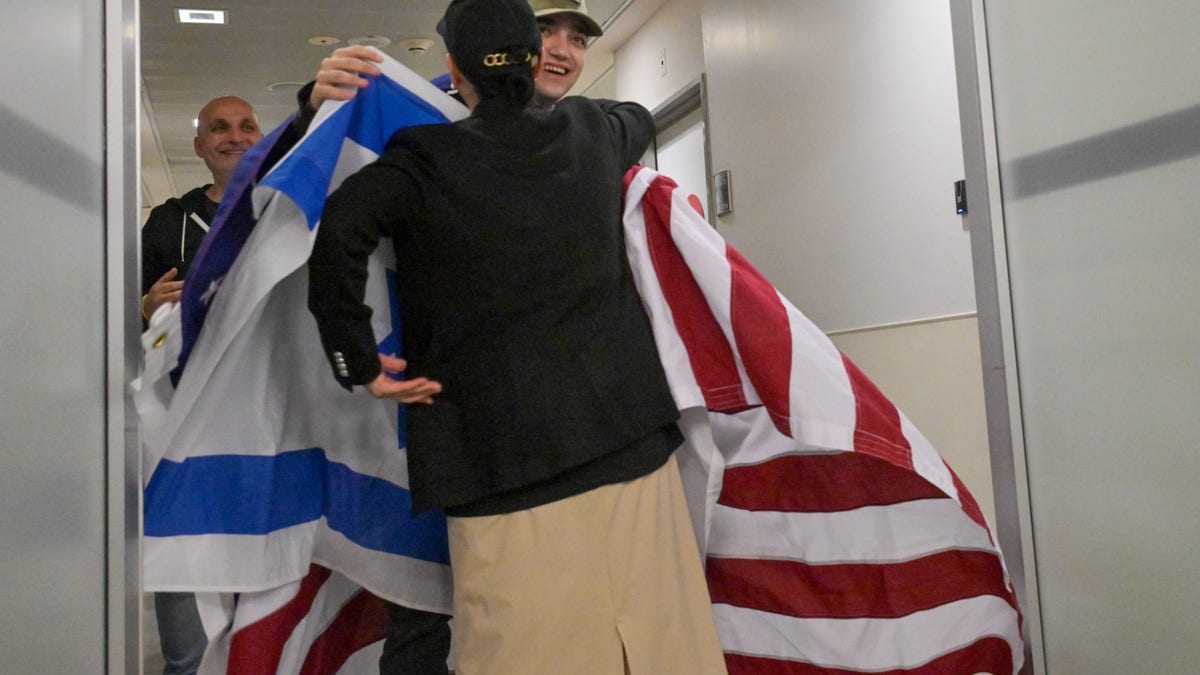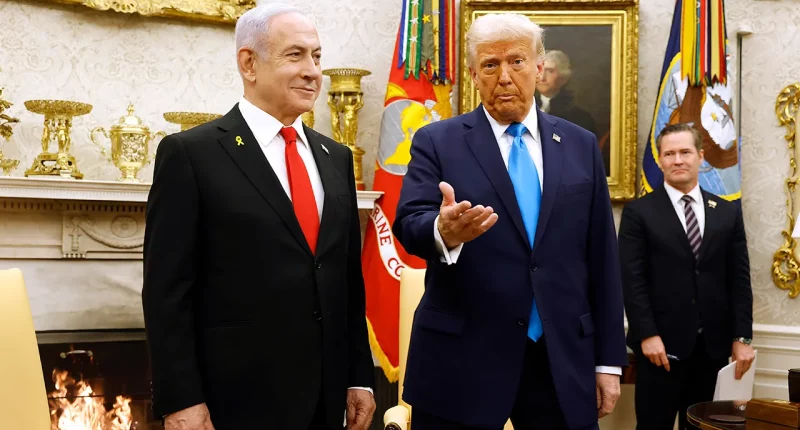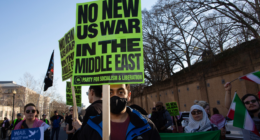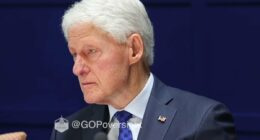Share this @internewscast.com
TEL AVIV – As President Donald Trump concluded his crucial tour of the Middle East last Friday, a number of media reports interpreted his decision to not visit Israel as a sign of discord between him and Prime Minister Benjamin Netanyahu.
Despite Air Force One not touching down in Israel, analysts suggest that Trump’s visit furthered policies that closely align with Israeli goals and provided Jerusalem with a strategic chance that remains untapped.
Avner Golov, vice president at MIND Israel and previously a senior director of Israel’s National Security Council, conveyed to Fox News Digital that “Israel observes an enormous wave heading across the Middle East—signifying momentum and transformation. The crucial choice for Israel is whether to navigate this wave or be overwhelmed by it.”
The sense of urgency grew last week when Trump abruptly paused U.S. airstrikes on Iranian-backed Houthis just days after a missile landed near Ben Gurion Airport. Reports soon followed that Washington had dropped its demand for Israeli-Saudi normalization as a prerequisite for a U.S.–Saudi nuclear pact — a strategic goal long championed by Netanyahu.
Reuters later confirmed the shift. Meanwhile, Saudi officials made clear that progress on the Palestinian issue remains a prerequisite for any nuclear deal — something seen as unlikely while the war in Gaza continues.
“After the Saudi story, where we were thrown under the bus, I said we need to stop and investigate,” Haiman said. “We shouldn’t just say it’s the president’s whims. We need to ask, ‘What depends on us? What needs to change?’ I’m not sure they’re doing that.”
The sharpest potential rift remains Iran. Jerusalem views a nuclear-armed Tehran as an existential threat. Haiman calls this “a historic window” to stop it, by force if needed. “The American interest is to finish wars, not enter them, and to seal a deal better than Obama’s,” he said, warning that a diplomatic track pursued over Israel’s head could soon limit Israeli military options.

Edan Alexander meets with his extended family following his release. (IDF)
Monday’s release of 21-year-old American-Israeli Edan Alexander, freed after direct talks between Washington, Qatar and Hamas, added to some fears of Jerusalem being sidelined. Israel played only a logistical role.
Within Israel, the Gaza war continues to divide strategists over whether to keep pressing Hamas or stop the war for a hostage deal. Haiman called the current “fight, deal, fight” rhythm “boiling the frog,” but acknowledges that without a hostage deal now, the 21 living hostages might not survive.
Golov believes it is time for Israel to stop reacting and start shaping events. He urged Jerusalem to push Washington to demand that “Qatar must stop funding Hamas, stop Al Jazeera’s incitement, and pay a price for interfering inside Israel.” Israel, he argued, does not have the leverage to do that alone.
“It must anchor itself in a regional bloc — with the Emirates, Saudi Arabia, and Jordan — states that are just as terrified of a Muslim Brotherhood resurgence.” To get there, he said, Israel must climb aboard the wave Trump has already set in motion.
















